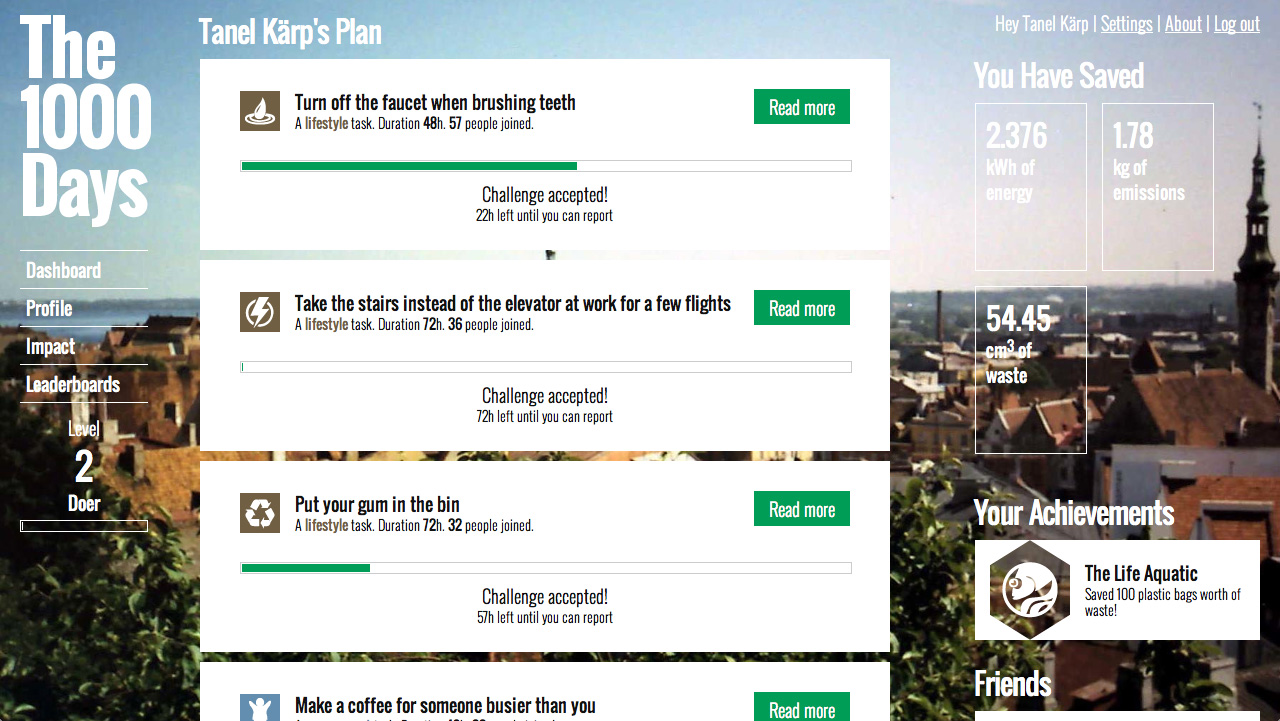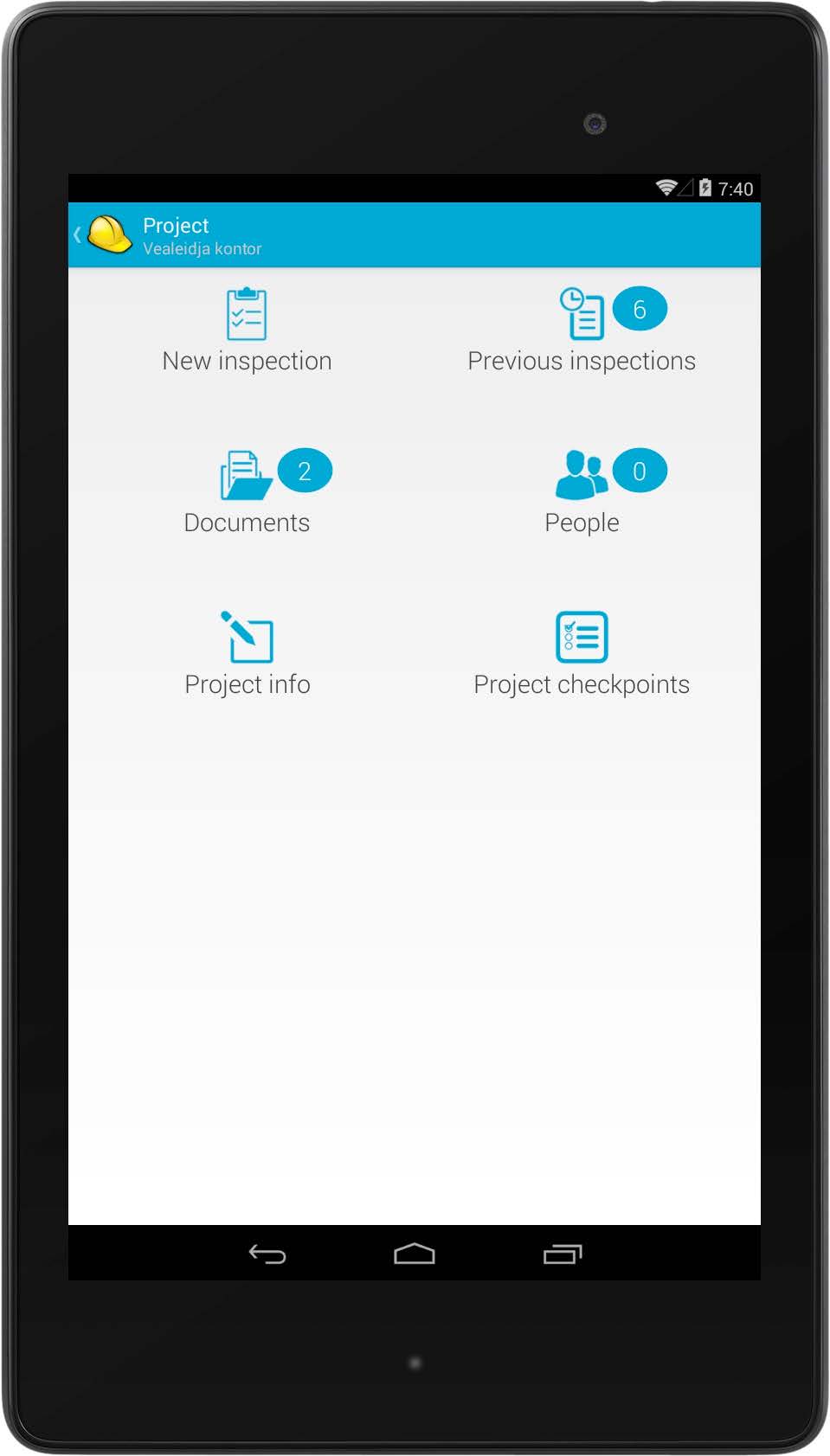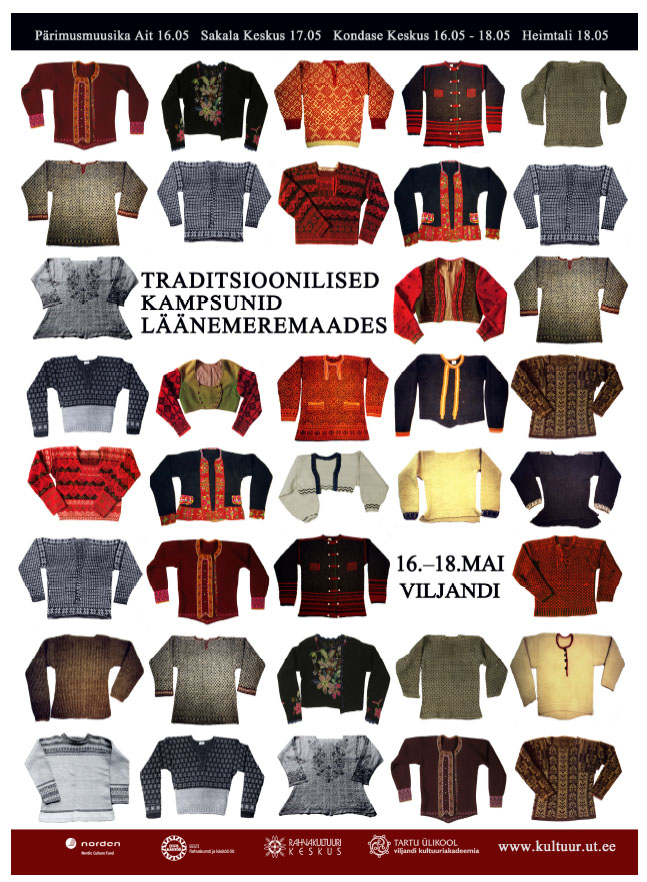“INTERNETIPÕHISTE MÄNGUSTAMISMEETODITE KASUTAMISSOBIVUSE TÕESTAMINE, JUURUTAMAKS LOODUSSÕBRALIKUMAT KÄITUMIST” (juhendaja Taivo Lints, MSc).
LÜHIÜLEVAADE: Inimtegevus põhjustab biosfäärile üha suurenevat kahju, mis on hakanud ohustama lisaks looduskeskkonnale ka meie ellujäämist liigina.
Teadlikkus olukorrast on kasvamas, ent tegevused probleemi lahendamiseks mitte. Keskkonnaaktivistidel puuduvad nii teadmised kui vahendid, et ühiskonnas vajalikke käitumisharjumuste muutusi esile kutsuda. Samal ajal on aga internet kui meedium üha enam tõendamas oma efektiivsust suurte rahvamasside käitumise mõjutajana.
Lõputöö teemapüstituseks on seatud küsimus, kas internetis kasutatavate gamificationi-meetoditega on võimalik mõjutada inimeste harjumusi, juurutamaks loodussõbralikku eluviisi.
Üks uusimaid meetodeid harjumuste muutmiseks on gamification, mis hõlmab endas mängudisaini elementide kasutamist mittemängu kontekstis. Akadeemilise ja praktiseerijate maailma eraldatuse tõttu on seni gamificationitvähe teaduslikult käsitletud. Seniste uurimuste tulemused pole leidnud kasutust toodete loomisel. Antud uurimus üritas neid kahtle maailma lähendada ning tõestada, kas gamification on efektiivne meetod, juurutamaks loodussõbralikumat käitumist.
Selleks loodi eksperimentaalne prototüüp, mis põhines Eric Ries’i „Lean Startup“- ideoloogial ning oli disainitud kasutades Yu-kai Chou gamificationi-meetodite mudelit. Samuti viidi läbi eel-eksperimentaalne uurimus mõõtmaks, kuidas prototüübi kasutamine mõjutas katses osalenute käitumist. Loodud prototüüp osutus efektiivseks vahendiks uute osalejate kaasamisel. Mõõdetav oli nii varasemast loodussõbralikum suhtumine kui ka reaalsete igapäevaste säästlike tegevuste arv, mida katses osalenud nüüd ette võtsid.
Uurimus järeldab, et gamification on efektiivne meetod jätkusuutlikumate harjumuste loomiseks ning tutvustab tervet rida tähelepanekuid ja ettepanekuid uurimuse jätkamiseks. Lõputöö käigus valminud prototüüpi saab aga käsitleda kui platvormi, mille põhjal edasisi arendusi luua.
Tanel Kärp
lõputöö autor
TÜ Viljandi Kultuuriakadeemia
LÄBITUD ÕPPEKAVA: virtuaalkeskondade loomise ja arenduse magistriõppekava.
SUMMARY: The goal of this thesis is to validate whether online gamification methods can be used to introduce pro-environmental lifestyle. Human activities have since the Industrial Revolution had an increasingly destructive impact on the biosphere, which has started to endanger the environment and our existence as a species. Awareness of the situation is increasing, but real actions to combat the problem are not, as environmental activists lack the knowledge and tools to drive the necessary individual behavioral change. At the same time, the emergence of the internet has created a mass medium which has proven to be very effective in altering individuals’ habits.
One of the newest and most potent methodologies to spark behavioral change is gamification, which implies using game design elements in non-gaming context. Due to a vast gap between the academic and commercial practitioners’ world, little research has been so far done regarding gamification, and the results of these studies have not been implemented to create effective products. This research tried to bridge this gap and validate the use of gamification to drive proenvironmental behavior change, by deploying an experimental prototype which was developed based on Eric Ries’ Lean Startup ideology and Yu-kai Chou’s Octalysis gamification framework.
In addition, a pretest-posttest survey was conducted to investigate the impact of using the prototype. The minimal prototype proved to be effective in acquiring and engaging new members by growing its user base 8.5 fold. More than one fourth of registered members became engaged users and continued to use the gamified product throughout the experiment. The pretestposttest survey results indicated that engaging with the prototype did in fact change the users’ behaviors towards a more sustainable lifestyle, moderate pro-environmental increases were detected in both respondents’ attitudes and concrete undertaken everyday activities.
The study concludes that gamification is an effective methodology to introduce pro-environmental behavior and presents an array of insights and suggestions to continue the research. The prototype created for the thesis acts as a platform upon which further developments can be made.




